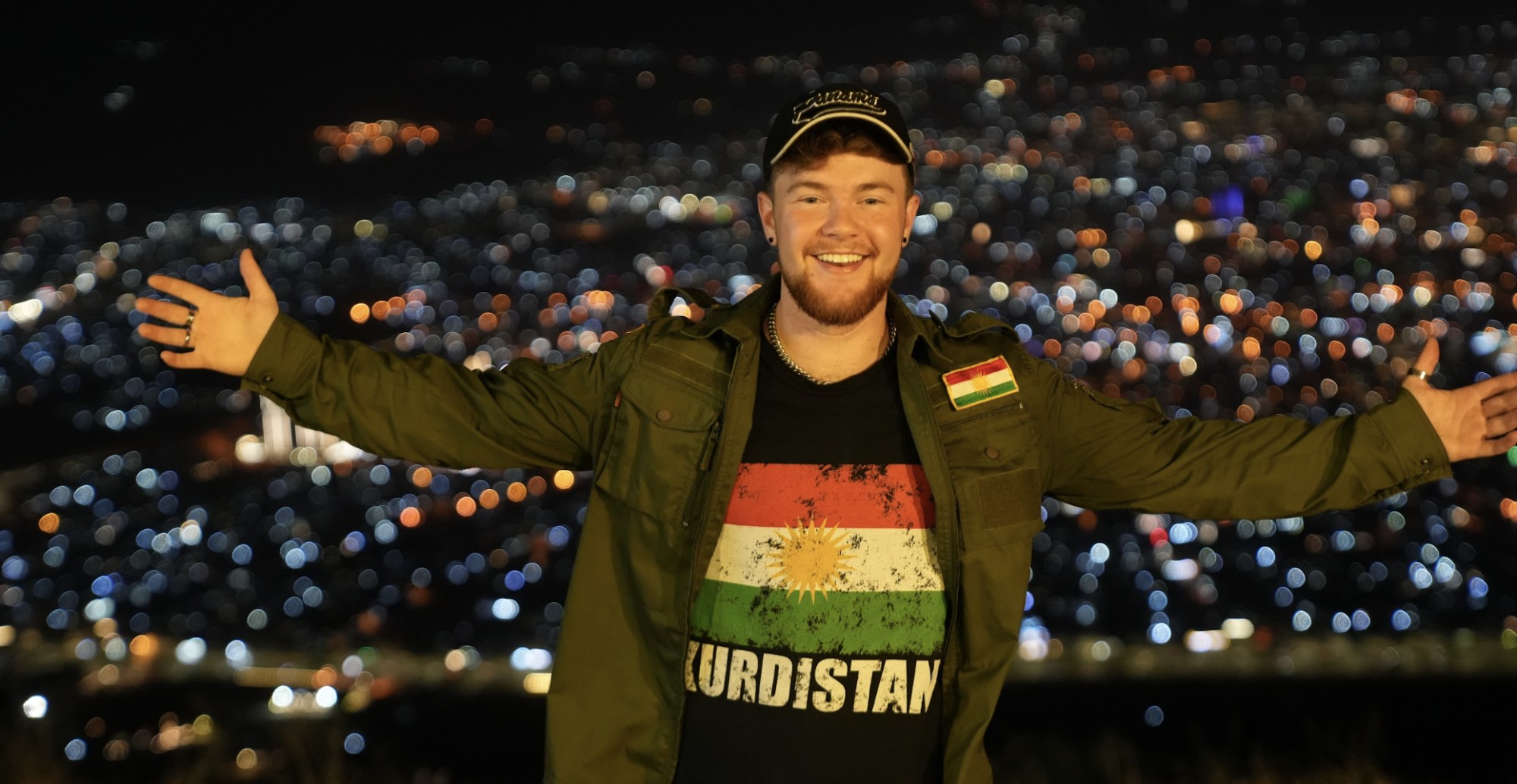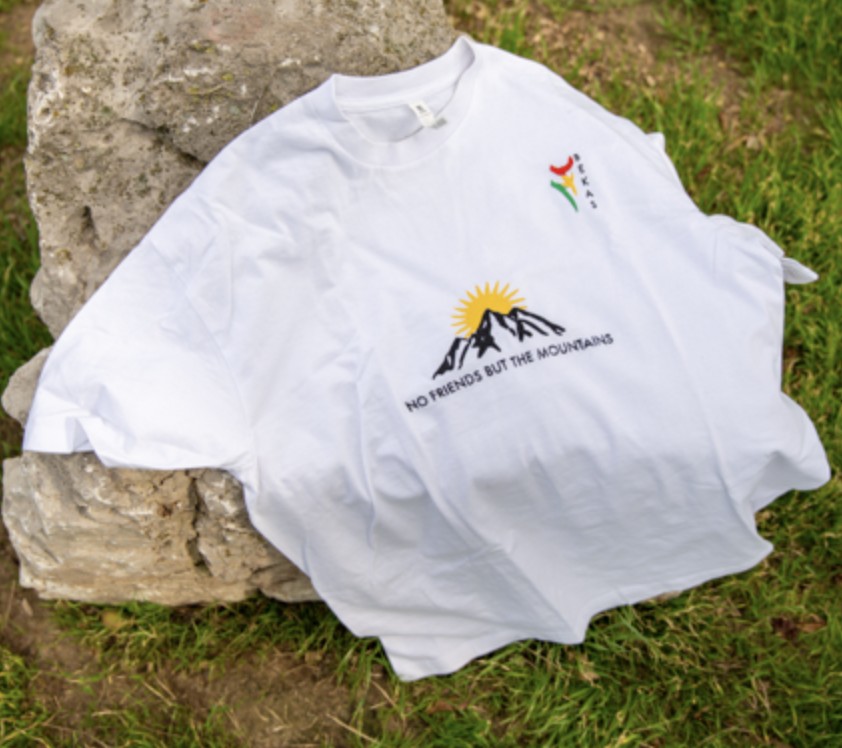The November issue of Kurdistan Chronicle featured a story about the training in cognitive behavior therapy (CBT) being delivered by the Oxford Cognitive Therapy Centre, a part of Oxford University, to 30 trainees in the Kurdistan Region of Iraq. CBT is the most internationally researched and most effective form of ‘talking cure’ therapy and is endorsed by the World Health Organization as the ‘go-to’ treatment for most mental health patients.
As a follow up, this article recounts the experiences of two successful trainees in the Oxford program, Dyari Hama Amin and Vana Jabar. Their experiences have unlocked insights that resonate across Kurdistan in light of the challenges that the region has been faced with. The two trainees explain what they have learned through the training, what mental health means for them, and its importance to Kurdish society.
Intergenerational trauma
Amin’s interest in mental health started at a very young age, namely during the upheaval of the U.S.-led invasion of Iraq in 2003. “One of my earliest memories is waking up early in the morning, and everything around me was in total chaos. I asked my family, ‘What’s going on?’ They told me, ‘well, there’s a possibility that our city will come under attack from chemical weapons.’ We decided to stay. It was an extremely vivid experience,” Amin recalled.
“My father was going around trying to plug windows, and everyone was doing something,” he related. “I often look back on this, especially to when my parents would act anxiously, when they would be overprotective, when they would put an overemphasis on us eating because they’d been through the embargo [in the 1990s, during the international sanctions on Iraq] and knowing what it was like not having enough food.
“Understanding the connection between what my parents had been through, their thoughts and emotions, and then how they behaved with me was what triggered my interest in psychology. Later, one of my cousins told me about her struggles with depression, which made me interested in using psychology to help people in a clinical setting,” Amin explained.
Amin underscored that many Kurds of his generation have faced the same hardships, which further motivated his interest in studying how CBT can help heal intergenerational trauma with trauma-informed therapy.
Meanwhile, Jabar has been working with internally displaced people who fled ISIS into Kurdistan. She agrees that trauma can be passed through generations and that many younger people can feel the impact of the trauma that their parents went through.
Her own mother shows clear anxiety, which is derived from her previous traumatic experiences. “She’s always scared that something bad will happen or I will die and as a result, she’s always calling me and asking where I am, have I reached my location, am I safe, and so on,” Jabar explained.Amin and Jabar consider themselves part of what they call the “Healing Generation,” but agree that it can be hard to treat and heal their parents’ generation given all the trauma that they have experienced.
Many of Amin’s clients are affected by their own trauma, with depression and anxiety and other issues flowing from that of their parents. However, the newer generations who experienced the post-1990s and post-2003 traumas are more open to therapy and more committed to the process, according to him. These younger generations talk about mental health or seeing a therapist as something quite normal, as it should be.
CBT in a local context
When Jabar heard about the Oxford-led CBT course she remembered thinking that it would be “magical” to be able to advance her studies in psychology. Initially afraid that the trainers would only talk to or at them, she quickly realized that she was mistaken. The course offered ample time and space for the students to practice their skills and techniques and increased the trainees’ competence. enabling them to practice therapy more comfortably, ethically, and capably.
Ultimately, the course expanded the tools in their therapeutic toolbox.
The trainees were also surprised and impressed by the effort the Oxford trainers would exert to contextualize CBT to a Kurdistan setting, by referencing Zakho Bridge or Kurdish food, for example, and in listening to the trainees’ perspective. The trainers would say, “we know CBT, but in terms of your local context, you know better, you are the experts,” according to Amin and Jabar.
All the trainees received many hours of supervision with Oxford tutors so they could discuss their own clients and cases. “My supervisor was great. He would say, ‘We don’t want to change who you are. We don’t want to change your background. We don’t want to change your approach. We’re just trying to help you to learn something new and integrate it into your practice.’ And I always appreciated that because it allows for a smooth process,” Amin said.
Both Jabar and Amin agreed that, despite the challenges of healing the traumas of their parents’ generation, a lot is changing for their generation, with people much more aware about mental health and how to improve it. Jabar attributed this to a greater understanding of mental health due to greater access to outside thought. Her own father was reticent about her studying psychology, saying that there was no future in that field, but he changed his mind once he understood the difference that Jabar and her colleagues were making.
Nevertheless, there is a long way still to go, and there is a dearth of qualified therapists working in the Kurdistan Region.
Jabar gave an example of something that had happened on the day of our interview. One of her friends had called from a hospital, having seen a young man with thirty degree burns on his body. Of course, he needed urgent therapy given how “broken” he would be, and given Kurdish society’s occasional reluctance to speak openly about suicide. But at that hospital, there was no social worker or psychologist to help the distressed young man in his hours of need.
Beyond wanting the Oxford training to continue to grow and expand the number of therapists, Jabar would like to see mental health awareness increase in schools in the Kurdistan Region. Moreover, she would like to become a supervisor of other therapists. Meanwhile, Amin wants to continue working in his current practice, branch out into teaching therapy to other residents in the region, and conduct academic research to deepen his understanding of the field.
Chris Bowers is the former UK Consul General in the Kurdistan Region and has been working on KRI for more than a decade.

